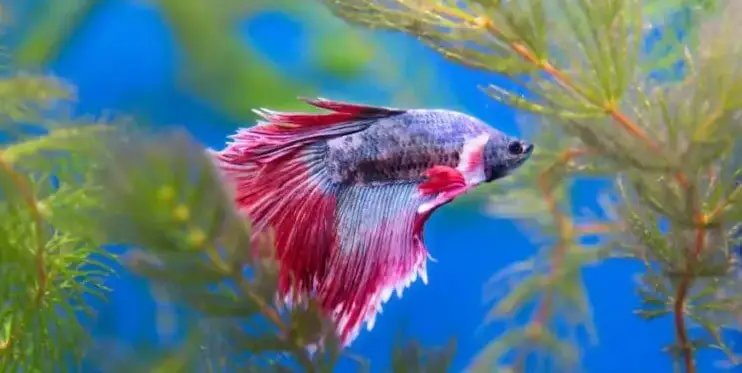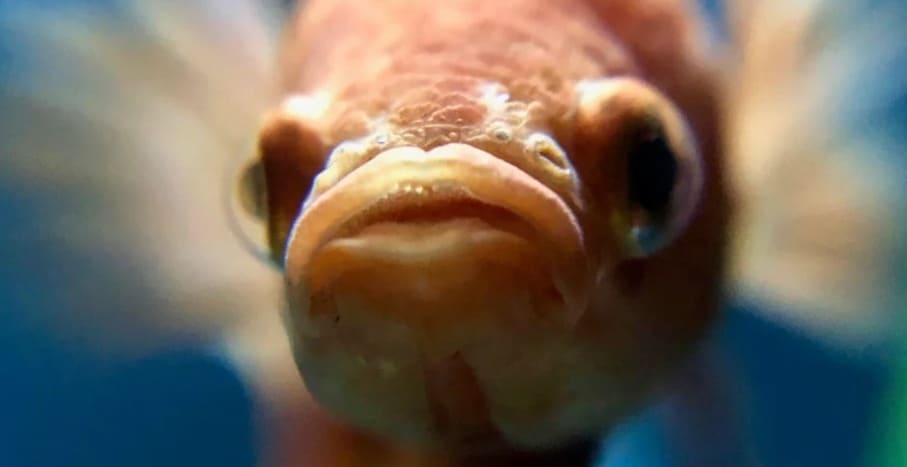Many people who have a betta fish find themselves asking this question at some point. It is understandable that many of these owners are worried about their pet’s health and want to know the answer quickly.
In this article, we will discuss what causes a betta fish to twitch and how you can tell if it is normal or not. We’ll also provide tips on how to help your little friend feel better as soon as possible!
Why Is My Betta Fish Twitching?
There are a few reasons why a betta fish might twitch. One of the most common reasons is due to stress. When a betta feels threatened or uncomfortable, it can start to twitch as a way to try and scare away whatever is causing it distress.
I will now go through the main reasons for betta fish twitching…
1. Ich – thyophthirius multifiliis
This is a type of parasitic infection that can cause your betta fish to twitch. It will look like white spots on the fish’s body and fins. If left untreated, this infection can be fatal.
Ich is a very common disease in betta fish and is often contracted after a betta has been moved to a new aquarium. The main symptom of ich is when your little friend starts twitching.
In order to treat this ailment, you will need some type of medication designed specifically for the infection that your pet has contracted. You can usually find these medications at your local pet store.
2. Ammonia issues
Ammonia is a chemical that builds up in the water when your betta fish isn’t kept clean enough. If you notice your betta’s fins are twitching, this could be caused by an ammonia issue.
You should check the water’s pH level and ammonia levels to see if they are in the safe range. If not, you will need to take some steps to correct them. This is where a quarantine tank can be helpful.
Moss balls are great for controlling the levels of ammonia and nitrates in the fish tank. This is just one reason why I recommend all betta owners use moss balls. In fact, here’s a great article on how to use moss balls.
3. Chlorine compounds in the water
Chlorine is often used to disinfect water, but it can be harmful to fish. If your betta’s fins are twitching, it might be due to the chlorine compounds in the water. The best course of action is to replace the water and make sure it is dechlorinated.
You can test if the water has chlorine by using a liquid dechlorinating solution. Test the water before you change it to make sure there are no chlorine compounds in your betta’s environment.
4. Gill flukes
Gill flukes are a type of parasitic infection that can cause your betta fish to gasp for air and twitch. Symptoms of gill flukes include red gills, rapid breathing, and head shaking. In worse cases, it can result in death, which is why it is important to get your fish treated if you think it might have this infection.
5. Stress
Stress is one of the most common causes for betta fish to twitch. Sudden changes in the water, loud noises or overcrowding can all cause stress and lead your fish to start twitching. They do this as a way to try and scare away whatever is causing them distress.
If your betta fish is twitching, the best thing you can do is try and calm him down. You can do this by adding some plants or decorations to his tank to make him feel more comfortable. You can also try turning off any lights or noises that might be stressing him out.
If the twitching continues for more than a day or two, it is best to take your fish to a veterinarian. He might have an infection or some other health problem that needs treatment.
How Can I Tell if Twitching Is Normal?
If you notice that your betta’s fins are just flapping gently without any jerking, then it is probably normal. However, if your betta’s fins are jerking or spasming, this might be a sign of distress and you should take action to help your fish feel better.
You should also try to see if your betta rubs its body against plants or other decorations to reallocate its slime coat. If your betta is rubbing itself excessively, it may be trying to tell you that parasites are present.
Tips for Helping a Betta Fish Who Is Twitching
If you think that your betta fish is twitching due to stress, there are a few things you can do to help.
- Make sure that your fish’s tank is clean and free of ammonia build-up
- Try to create a calm environment for your fish by adding some plants or hiding spots
- Don’t overcrowd your tank – this will only add more stress to your betta
- Try to avoid making loud noises around your fish’s tank
If you try these tips and your betta is still twitching, it might be a sign of an infection or disease so we recommend taking him/her to the vet for further diagnosis/treatment. Your betta will love you forever if you take care of them properly!
Conclusion
In conclusion, there are a few reasons why your betta fish might start twitching. The most common reason is due to stress, but it can also be caused by ammonia build-up, chlorine compounds in the water, or parasitic infections.
If you notice that your betta’s fins are jerking or spasming, take action to help him/her feel better. You can avoid stress by making your fish’s tank clean and creating a calm environment with plants or hiding spots for them to feel safe in. If nothing seems to help, it might be time for you to take your betta to the vet!
I hope you have found this article helpful. If you have any questions, please don’t hesitate to leave a comment below. Thanks for reading!






